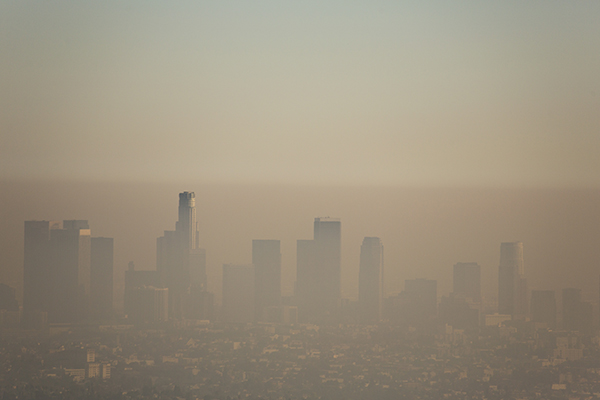Martin, Biswas to help establish global air pollution network
Randall Martin and Pratim Biswas join a multi-institutional effort to measure air pollution worldwide

Air pollution has been attributed to an estimated 4 million premature deaths worldwide as well as numerous adverse effects on health, according to the World Health Organization. The effects are worse in places with the least amount of resources to address the issue.
An internationally renowned team of Washington University in St. Louis aerosol scientists plans to work with colleagues at Columbia University, Carnegie Mellon University and other institutions to establish a global network of networks that will collect real-time air quality data and develop ways to solve the issue with a five-year, $2 million grant from the National Science Foundation. Randall Martin, professor of energy, environmental & chemical engineering, will lead the effort in the McKelvey School of Engineering, along with Pratim Biswas, the Lucy & Stanley Lopata Professor and chair of energy, environmental & chemical engineering. Daniel Westervelt, associate research scientist at Columbia University, is the project's principal investigator.
The team will establish the Clean Air Monitoring and Solutions Network (CAMS-Net), a network of 32 networks from North America, Europe, Africa and India to bring together scientists, leaders, citizens and industry to collect and share open-access data as well as ways to improve air quality. The network will rely on existing low-cost sensors worldwide and create a consortium to calibrate the sensors to gather research-quality data. In addition, researchers plan to use the networks to evaluate air quality models and to provide information for future implementation of air quality standards.
The team also will include graduate students and postdoctoral researchers training for careers in air quality research.




